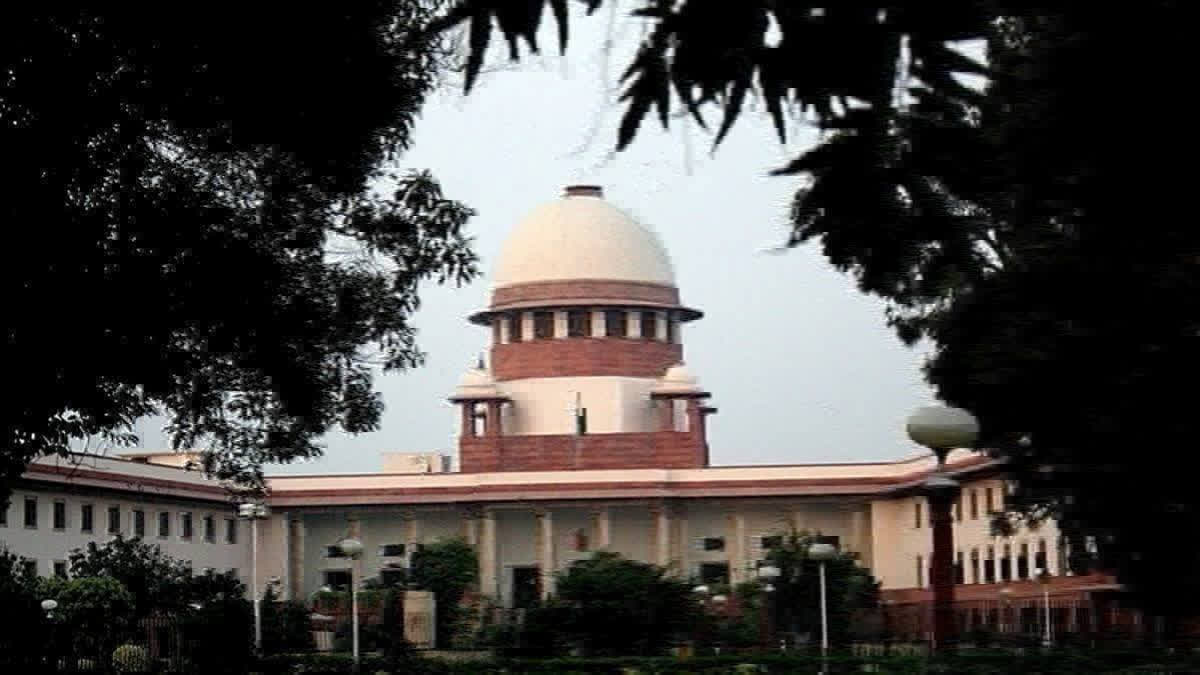New Delhi: The Supreme Court on Friday acquitted a man convicted of cruelty and causing the dowry death of his wife, saying that the trial courts are committing the same mistakes repeatedly in such cases and perhaps, this is a case of moral conviction and stressed that it is for the state judicial academics to step in.
The judgment was delivered by a bench comprising Justices Abhay S Oka and Ujjal Bhuyan. The bench said the prosecution did not prove the material ingredients of the offence punishable under Section 304-B (dowry death). "Not a single incident of cruelty covered by Section 498-A (husband or relative of husband of a woman subjecting her to cruelty) was proved by the prosecution. Section 304-B of the IPC was brought on the statute book in 1986," it said.
Justice Oka, who authored the judgment on behalf of the bench, said: “This court has repeatedly laid down and explained the ingredients of the offence under Section 304-B. But the trial courts are committing the same mistakes repeatedly. It is for the state judicial academies to step in. Perhaps this is a case of moral conviction".
Justice Oka said the case was void of the essential ingredient as none of the statements of the witnesses contained any specific instances of cruelty or harassment.
Citing the deposition on the dowry demand, the bench said the victim's mother did not attribute any particular act of cruelty or harassment to the husband.
"There is something fundamental which goes to the root of the matter. While deposing about the demand of dowry, she has not deposed to any particular act of cruelty or harassment by the appellant. This is an essential ingredient of Section 304-B. It is not made out from the evidence…," said Justice Oka.
Setting aside the orders of the Punjab and Haryana High Court and the trial court, Justice Oka said both the offences alleged against the appellant were not proved by the prosecution beyond reasonable doubt, and acquitted the man. "Both the offences alleged against the appellant were not proved by the prosecution beyond a reasonable doubt. Hence, the impugned judgments dated 9th November 2010 and 24th January 2002 are hereby quashed and set aside and the appellant is acquitted of the offences alleged against him. The appellant was enlarged on bail pending this appeal. Hence, his bail bonds are cancelled", said the top court.
The man and his parents were tried for the offences under Sections 304B and 498A read with Section 34 of the IPC. The trial court convicted the man and acquitted his parents’.
The couple got married in June 1996, and the woman allegedly died by suicide on April 2, 1998. The time frame, woman’s death within 7 years’ of marriage, is a prerequisite to establish the offence under Section 304B of IPC. The doctors opined the death occurred due to asphyxia from hanging and the woman's mother, brother, and maternal uncle, were main witnesses in the matter.



